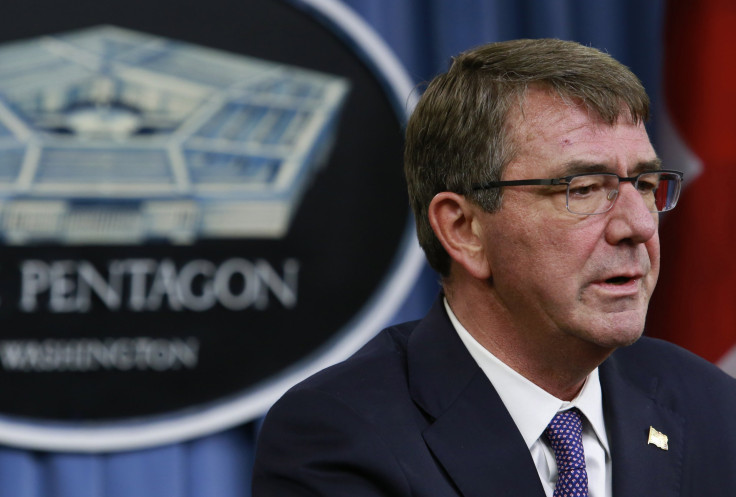US Military Spending Bill 2016: Amid Anti-ISIS Fight, Department Of Defense Would Be Fully Funded To Target Islamic State

Details in the U.S. government's effort to fund the Department of Defense and its anti-terror efforts through the fiscal year 2016 were made public Wednesday in the proposed Omnibus legislation. The spending bill was finalized less than 12 hours after congressional leaders agreed Tuesday night on the government’s $1.6 trillion fiscal plan to avoid the government being shut down.
If approved, the $572.8 billion spending bill would provide funding for ongoing military operations, including the war against the Islamic State militant group in Syria and Iraq, military personnel and pay, health and military family programs, operation and maintenance, research and development, procuring equipment and addressing the Guantanamo Bay detention center in Cuba. The House is expected to vote Friday to authorize the Omnibus spending bill.
The money allocated would include $58.6 billion in overseas contingency operations (OCO) — funds for the global war against terror — as well as for training, backing countries in opposition to Russia and for intelligence and surveillance efforts.
“The road to this final bill has not been easy, but it has been an open process that followed ’regular order’ to the maximum extent possible," House Appropriations Committee Chairman Hal Rogers said Wednesday in a statement. "Over the course of the last year, the Appropriations committee held over 100 hearings, and approved each of the 12 individual funding bills through an open Committee process where dozens upon dozens of amendments were debated. Seven of these bills were taken up by the full House under open rules — including over 78 hours of debate on the floor and 456 considered amendments."
Nearly $130 billion would be earmarked for compensation of servicemen and women, a figure that is more than a $1 billion raise from the year prior and includes a 1 percent pay raise across the armed forces. Housing for eligible military personnel and their families as well as various medical accommodations, such as suicide prevention outreach programs and psychological health, are also heavily accounted for under the proposed legislation.
Funds to address technical aspects of the spending bill, such as troops’ preparations, combating sexual assault in the military, research and development of new defense technology and updating equipment, were also in excess of the administration’s requests. The Department of Defense would move ahead with securing the purchase of multiple combat vehicles and aircraft, including dozens of F-35 Joint Strike Fighters and two submarines.
Finally, the spending bill would take measures to officially end sending detainees to Guantanamo Bay, which earlier this month was determined would be too expensive to close.
Read the full text of the Omnibus spending bill here.
© Copyright IBTimes 2024. All rights reserved.






















